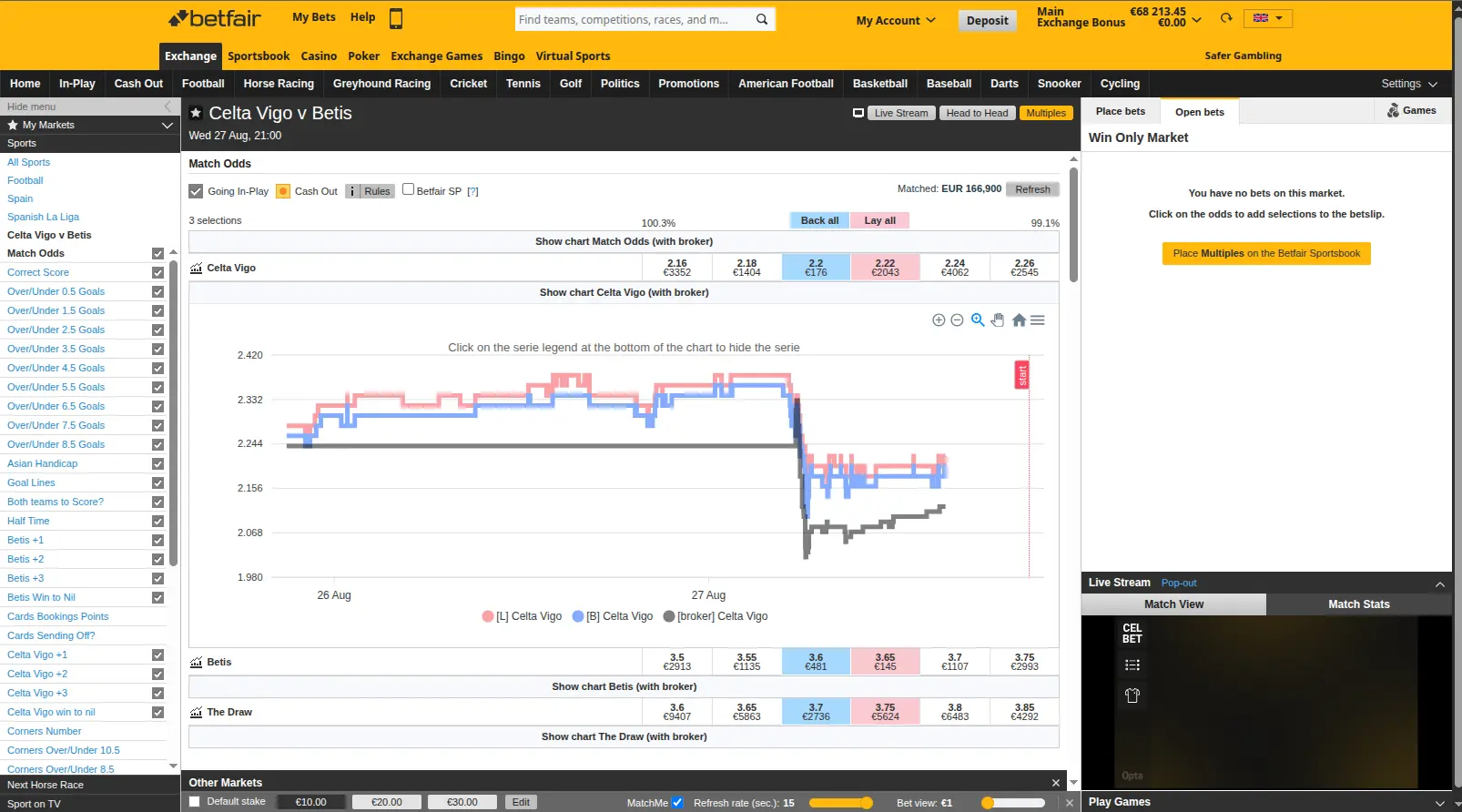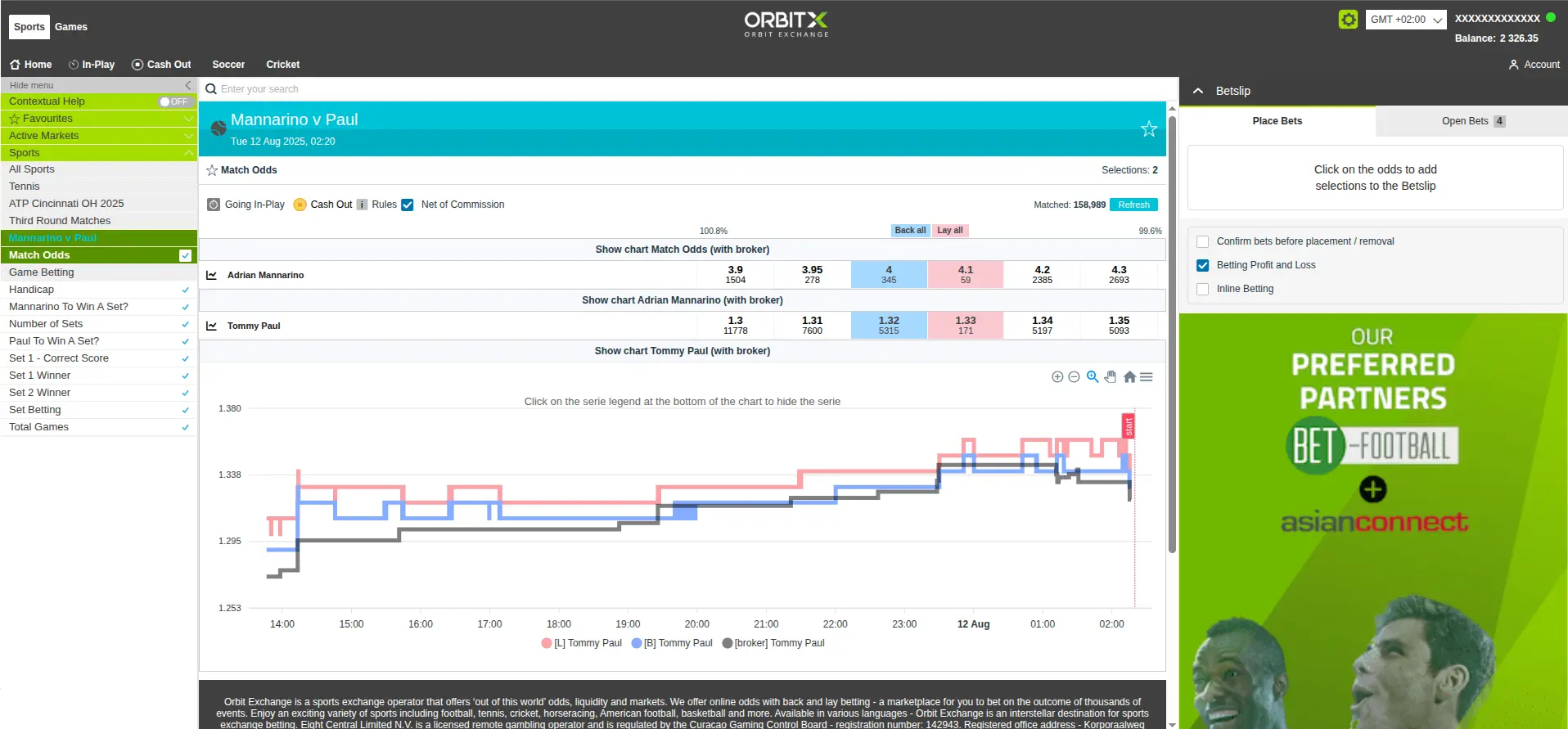Betting Exchanges vs. Traditional Bookmakers: What’s the Difference?
Sports betting has come a long way from walking into a shop, placing a bet, and waiting for the outcome. Today, two major models dominate the betting landscape: traditional bookmakers and betting exchanges. While both allow you to wager on sporting events, the mechanics, pricing, and strategies available are very different. Understanding these differences is essential if you want to maximize your edge as a bettor.

How Traditional Bookmakers Work
A traditional bookmaker (or “bookie”) sets odds on sporting events and accepts bets directly from customers.
- Fixed Odds: When you place a bet with a bookmaker, you lock in the odds offered at that moment.
- Bookmaker’s Margin: Bookies build in a margin (also called the “overround”) to ensure profit regardless of the outcome. This is why their odds often feel slightly worse than the “true” probability.
- House Always Wins: Since they take the opposite side of your bet, the bookmaker’s long-term business model is to profit from losing bets.
Example:
You bet €100 at odds of 2.0 (evens). If you win, you get €200. If you lose, the bookmaker keeps your €100.
Advantages: Simplicity, easy access, and wide availability.
Disadvantages: Limited odds value, restrictions on “sharp” winners, and often capped stakes.
How Betting Exchanges Work
Betting exchanges flip the model on its head. Instead of betting against a bookmaker, you bet against other users.
- Peer-to-Peer Market: One bettor backs a team (betting for it to win), while another lays it (betting against it). The exchange just connects the two and takes a small commission on winnings.
- Better Odds: Since no margin is baked into the odds, exchanges often offer prices closer to true probability.
- Lay Betting: Unique to exchanges, you can act like the bookmaker and accept other users’ bets.
Example:
You back a team at odds of 2.1, risk €100, and another user lays your bet. If your team wins, you collect €210 (minus small commission). If it loses, the layer keeps your stake.
Advantages: Often better odds, ability to lay bets, no stake restrictions.
Disadvantages: Requires liquidity (enough other users betting), slightly more complex to understand.
Key Differences at a Glance
| Feature | Traditional Bookmaker | Betting Exchange |
|---|---|---|
| Who you bet against | The bookmaker | Other bettors (peer-to-peer) |
| Odds | Set by the bookmaker, margin included | Market-driven, often better value |
| Profit model | Bookmaker profits from customer losses | Exchange takes commission on winnings |
| Lay betting | Not possible | Possible – you can “be the bookie” |
| Stake limits | Can be restricted for winning players | Generally no restrictions, only market liquidity |
| Complexity | Easy for beginners | More advanced, suited to strategic bettors |
Why Exchanges Are Growing in Popularity
For sharp bettors and traders, exchanges are becoming the preferred platform:
- Fairer odds: Small commissions often beat the hidden margins of bookmakers.
- Freedom to win: Exchanges don’t limit winning accounts.
- Strategic flexibility: The ability to both back and lay bets opens up trading opportunities, hedging, and in-play strategies.
Traditional bookmakers still dominate in convenience and accessibility, especially for casual bettors. But for those looking to treat betting more like a market—similar to stock trading—exchanges offer far greater control and opportunity.
The Future of Sports Betting

As betting evolves, we’re seeing more crossover between financial trading and sports wagering. Tools like browser extensions (e.g. Superpower Betting Exchange) now provide real-time odds tracking, market alerts, and profit optimization features—giving exchange users the kind of edge once reserved for financial traders.
Exchanges are unlikely to fully replace traditional bookies anytime soon, but they’ve carved out a strong niche among informed bettors who value transparency, liquidity, and freedom.
Final Thoughts
If you’re new to sports betting and want simplicity, a traditional bookmaker may suit you. But if you’re looking for sharper odds, more control, and advanced trading opportunities, it’s worth exploring a betting exchange.
After all, why only play against the house when you can compete directly in a market of peers?